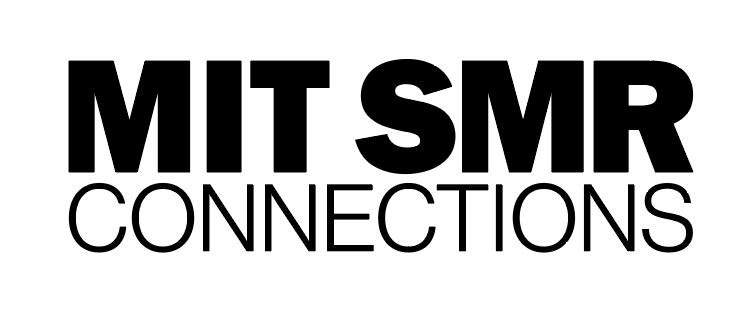As tech companies draw scrutiny over on-demand labor practices, one platform is piloting a program in which worker benefits are supported by customers.
As tech companies draw scrutiny over on-demand labor practices, Thumbtack is piloting a partnership with Alia, an app that helps house cleaners access benefits like paid time off.
Even before the online gig economy existed, a simple truth defined life in the American workforce: full-time employees get a safety net—the benefits, the labor protections, the security—and everyone else goes without. Tech companies have revolutionized how people work in countless ways, but this benefits gap persists, especially among low-income workers. The question now is whether these platforms can also be part of the solution.
Thumbtack is a classic gig-economy success story: Founded in 2008, just in time for the recession, the company eventually reached a billion-dollar valuation by matching professionals like tutors and painters to locals in need of their services, with millions of users across all but two zip codes in the US (both, according to the company, are in Oklahoma). This week, Thumbtack announced a pilot partnership with Alia, a portable-benefits app, to help some of those pros access benefits like paid time off.
Alia launched in December as a stand-alone platform for house cleaners to purchase benefits that have traditionally been difficult for them to obtain. It was developed by the innovation lab of the National Domestic Workers Alliance, a nonprofit advocacy group, with funding from Google.org and direct input from domestic workers about the kinds of benefits they most want. Once registered on Alia, clients can set up a monthly contribution for their cleaners, which can then be redeemed for paid time off and, in some states, life, disability, accident, or critical illness insurance. While the tool is only for domestic workers right now, the NDWA wants to expand to other kinds of independent workers.
“We’re early in our development. And we’re excited to have a platform as large and well-known as Thumbtack to partner with us,” says Palak Shah, the NDWA’s social innovations director. During Alia’s beta testing period last year, Shah and her team were heartened by how eager customers were to support workers; according to the NDWA, the average contribution worked out to $5 per cleaning. Alia would not release numbers on how much money was raised or how many clients participated while the app was in beta, but Shah says it was significant.
Thumbtack says it found a similar eagerness while interviewing users who have hired professionals through its platform. “Our customers want to help and support,” says Marco Zappacosta, Thumbtack’s CEO. “So, I think one of the big benefits of what Alia had done is it just made it dramatically easier for people to sort of express their thanks and participate in this program.” The pilot partnership is limited to cleaners in New York and California and is expected to last four to six months. If successful, it could be the first step toward opening Alia benefits up to all contract workers. “It will be interesting,” Zappacosta says. “Do words turn into action? That’s the big question.”
That question could just as easily be put to Thumbtack’s brethren in Silicon Valley. Tech companies fueling the gig economy have come under intense scrutiny for the way they treat workers. Recent investigations revealed that delivery startups like Instacart and DoorDash, as well as Amazon Flex, were using tips to cover their base pay to contractors, essentially denying workers their tips and enabling the companies to pay lower wages; Instacart said it would stop doing that. In California, a state supreme court ruling last year has sparked an ongoing policy debate over how companies classify workers. Some startups have abandoned the independent contractor model altogether. A number of policymakers and advocates argue that worker protections have not kept up with the reality of making a living in the 21st century.
“The labor conditions that a lot of people are getting agitated and anxious about have always been the conditions of this workforce.”
“Technology is changing everything that we know about domestic work,” says Shah, from how domestic workers find jobs, and on how many platforms, to how their reputations are formed (online reviews are the new word of mouth). As platforms become more powerful, they are able to influence wages—a growing problem some economists fear can lead to gig workers getting paid unsustainably low wages. And as pay decreases, so does a worker’s ability to buy their own benefits. (Professionals set their own prices for services on Thumbtack, which earns fees for generating new customer leads.)
“You can kind of think about domestic workers as a canary in the coal mine, so to speak,” Shah says. “The labor conditions that a lot of people are getting agitated and anxious about have always been the conditions of this workforce.”
The gig economy isn’t going away anytime soon, either. In 2016, McKinsey estimated that 20 to 30 percent of the working-age population in the US and Europe was doing some kind of independent work. Thirty-five percent of Americans freelanced in 2018, according to a study commissioned by Upwork and the Freelancers Union. Another study from JPMorgan Chase found that the online platform economy—a specific subset of the wider gig economy—is growing. In Silicon Valley, contractors increasingly fill the ranks of the biggest companies. House cleaners, babysitters, contract web developers, home health aids, house painters, or freelance journalists like me—all these jobs are of the gig variety and lack the employer-provided benefits and protections that traditional employees enjoy.
“Technology has solved for efficiency and convenience, but what we really need to figure out is how we solve for dignity and equity,” Shah says.
Thumbtack and Alia’s pilot partnership is one step, and both Shah and Zappacosta hope it will spark a wider conversation about how all workers deserve access to benefits. Zappacosta is hopeful that Thumbtack users will sign up for the service. The company is sending emails to the thousands of house cleaners in New York and California, encouraging them to sign up with Alia and offering a $25 credit to jumpstart their benefits accounts. Zappacosta says he’s prepared to nudge both cleaners and clients within the platform using things like banners or notices about Alia, too.
The pilot program does have some limitations. It’s available only to cleaners who reside in New York and California, at least for now. Alia also does not yet offer traditional health insurance. And, of course, it relies on the generosity of clients rather than any force of law. How secure is a safety net that’s built on voluntary donations? “A mandatory system would be better,” Libby Reder, a fellow for the Aspen Institute’s Future of Work Initiative, told WIRED last year, while Alia was still in beta. Everyone working for portable benefits agrees.
“From our perspective,” Zappacosta says, “the government and policymakers ultimately have to come to the table to figure out their role in all this.”





